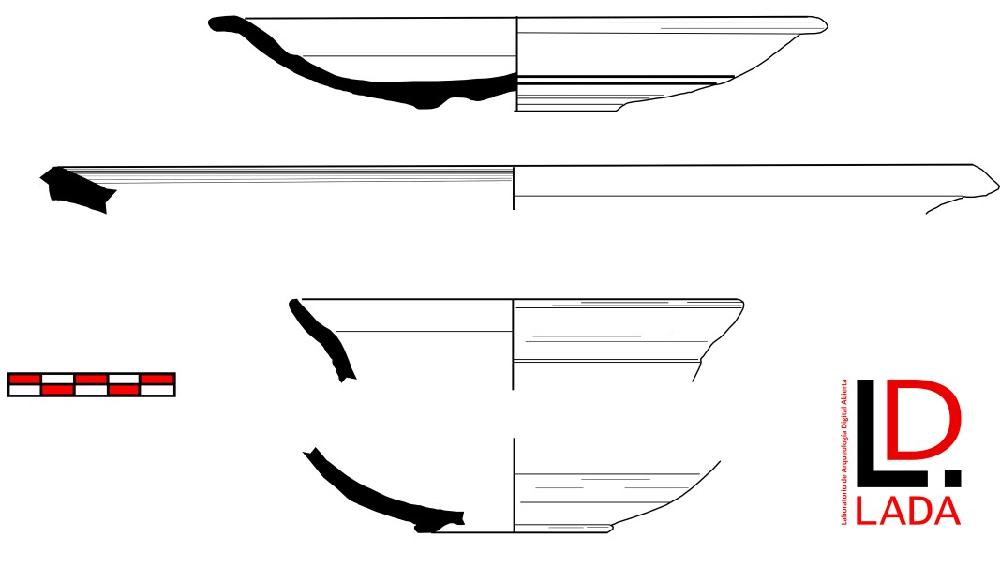The UC3M creates a digital public archaeology laboratory
12/14/21
Researchers at the Universidad Carlos III de Madrid (UC3M) have created an open archaeological laboratory which aims to integrate a broad sector of the population into the digitisation, analysis, and dissemination process of the archaeological heritage documented in the Community of Madrid.

Sheet with vector drawings of ceramic materials from the Roman levels of the rural settlement of El Rasillo (Barajas). Artwork and CAD: Jesús Bermejo Tirado.
This laboratory, created with help from the Spanish Foundation for Science and Technology (FECYT, in its Spanish acronym) from the Spanish Ministry of Science and Innovation, will provide an opportunity for the local population to get to know the archaeological heritage of Madrid and its management, as well as contribute to research and the free, open dissemination of the findings. In addition to this, it provides participants with the opportunity to receive the basic training needed to start archaeological research.
A volunteer programme has been launched within the framework of this project, led by Jesús Bermejo Tirado from the UC3M’s Institute of Culture and Technology, as part of this Open Digital Archaeology Laboratory (LADA, in its Spanish acronym). The activity has just begun and is planned to continue until next May. People interested in the project will meet for two hours a week to work on archaeological materials linked to various archaeological projects within the Community of Madrid.
Volunteers will receive training in different areas, including archaeology and digital humanities, archaeology in the Madrid area, digital tools, open access databases, CAD software (such as Inkscape in vector format and GIMP in raster format), geographic information systems (QGIS), and in the design and management of research in digital formats.
All of the work undertaken by volunteers will be integrated into an open access project and their efforts will be recognised in the credits of these publications, so that they can serve as a record of their participation.
More information:
https://www.uc3m.es/deporte/voluntariado/crowdsourcing_arqueologia